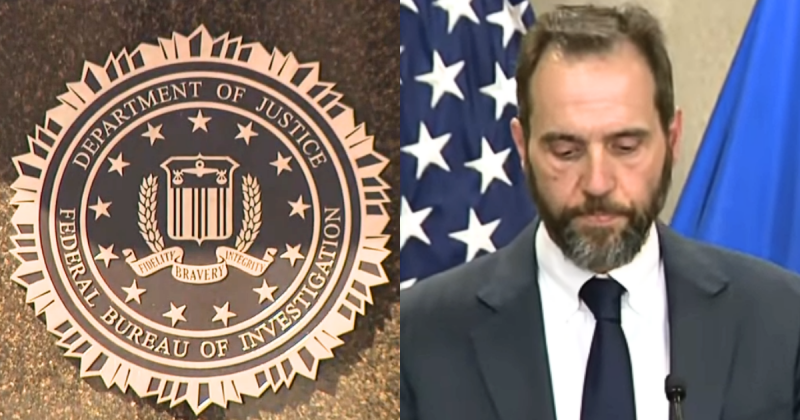Newly declassified internal emails reveal what Senate Republicans describe as a highly partisan effort by Special Counsel Jack Smith’s team to obtain private phone records from GOP senators and members of Congress in the Biden Justice Department’s Jan. 6 investigation of President Donald Trump.
The documents, released Tuesday by Sens. Chuck Grassley of Iowa and Ron Johnson of Wisconsin, raise concerns about legal overreach, procedural errors and potential misuse of investigative authority.
The emails detail repeated coordination between Smith’s Election Investigation Team and the DOJ’s Public Integrity Section (PIN) to approve subpoenas targeting lawmakers’ phone records.
Multiple communications repeatedly confused South Carolina Sen. Tim Scott with Florida Sen. Rick Scott, highlighting what critics describe as sloppy oversight and a lack of internal checks, according to Just the News.
Grassley and Johnson contend the documents reveal an intrusive approach aimed at members of Congress performing constitutional duties.
“These records show Smith and his merry band of partisans operating on a legally weak foundation,” Grassley said, accusing the DOJ of disregarding constitutional protections.
The subpoenas reportedly sought records from Sens. Lindsey Graham (SC), Bill Hagerty (TN), Josh Hawley (MO), Dan Sullivan (AL), Tommy Tuberville (AL), Cynthia Lummis (WY), Marsha Blackburn (TN) and Rep. Mike Kelly (R-PA).
Grassley’s office noted that some requests were duplicative, given prior access to Rudy Giuliani’s toll records.
Internal communications indicate that PIN recognized potential legal risks, including concerns that compelling disclosure could violate the Speech or Debate Clause.
Despite these warnings, the subpoenas moved forward, with the team assessing the likelihood of charges against lawmakers as low.
The documents also outline the involvement of telecom providers AT&T and Verizon. AT&T initially resisted providing Texas Sen. Ted Cruz’s records due to legal concerns.
Verizon reportedly received at least 43 subpoenas covering multiple senators, while AT&T handled two, including one connected to former Speaker Kevin McCarthy.
Errors in identifying targets continued throughout the process, illustrating procedural weaknesses within the DOJ’s oversight.
These emails are part of the broader Arctic Frost investigation, which reportedly issued nearly 200 subpoenas targeting more than 400 Republican figures and organizations in connection with the 2020 election and Jan. 6 events.
Additional documents suggest coordination between the White House Counsel’s Office and FBI agents to obtain devices belonging to Trump and former Vice President Mike Pence, raising questions about executive involvement in investigative operations.
Republican lawmakers describe the records as evidence of a politically motivated effort to surveil members of Congress.
Sen. Johnson said, “Collecting phone records from sitting members of Congress is only the tip of the corruption iceberg. I remain committed to exposing the full truth of Jack Smith’s and the Biden administration’s partisan actions.”
Legal experts caution that these disclosures could have long-term implications for congressional oversight, the scope of special counsel authority and executive investigative limits.
Courts reviewing procedural issues, such as repeated misidentifications and the handling of subpoenas, may set important precedents for how investigators interact with sitting lawmakers in politically sensitive matters.
As scrutiny intensifies, Republican officials maintain that the documents provide critical insight into what they describe as a highly politicized investigation.
The emails underscore concerns about partisan influence, legal overreach and the delicate balance between legislative protections and executive authority during ongoing high-profile investigations.
Observers also note that repeated errors in targeting and coordination may prompt future reforms within DOJ procedures, particularly regarding internal review of subpoenas against elected officials.
The implications extend beyond the current investigation, potentially affecting how special counsels and federal investigators engage with lawmakers while respecting constitutional safeguards and legislative independence.
With congressional and public attention on the Arctic Frost investigation, these newly released records highlight both the political stakes and procedural vulnerabilities of high-profile federal probes into Trump and his allies, signaling ongoing debates about accountability, transparency and the limits of federal investigative power.

